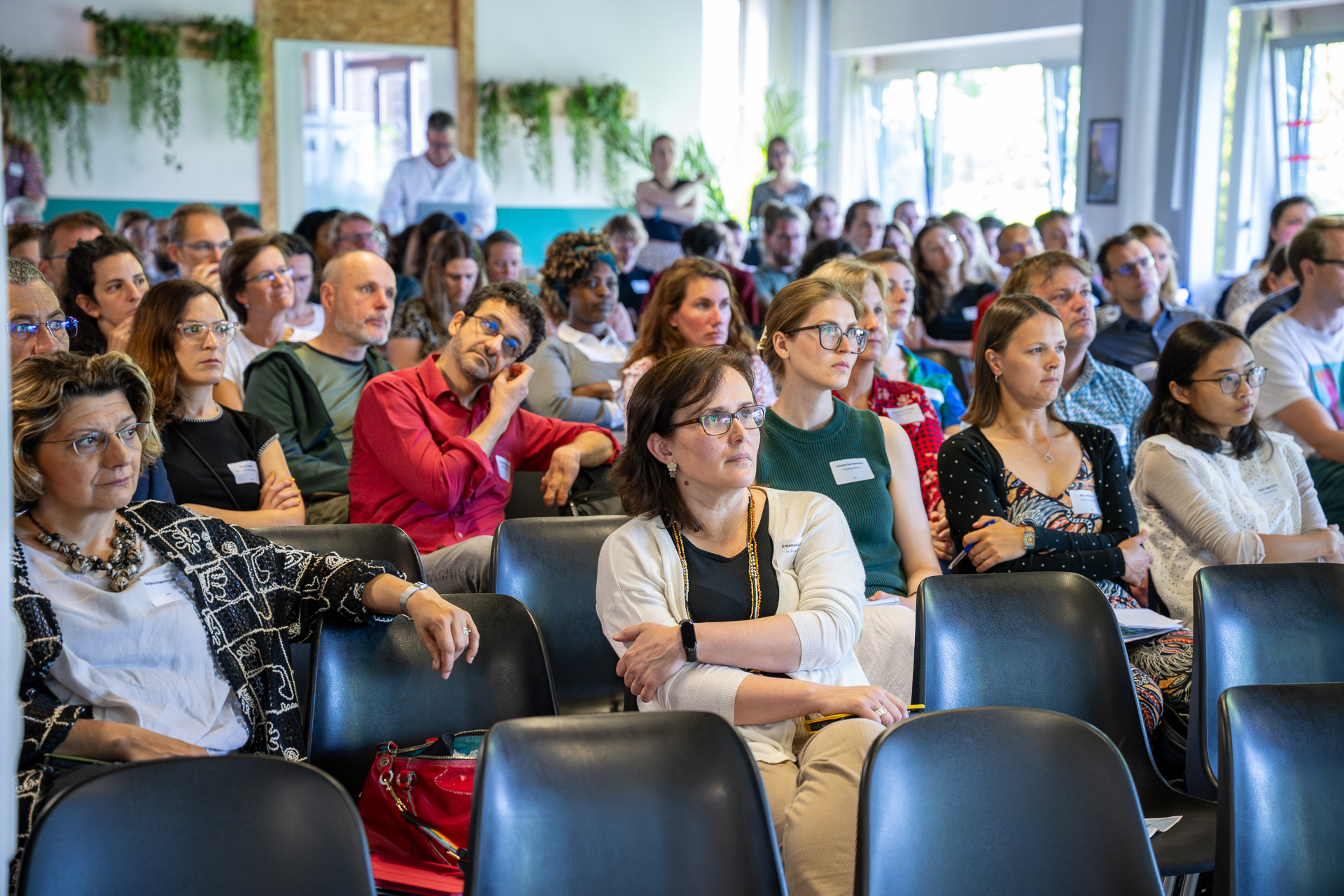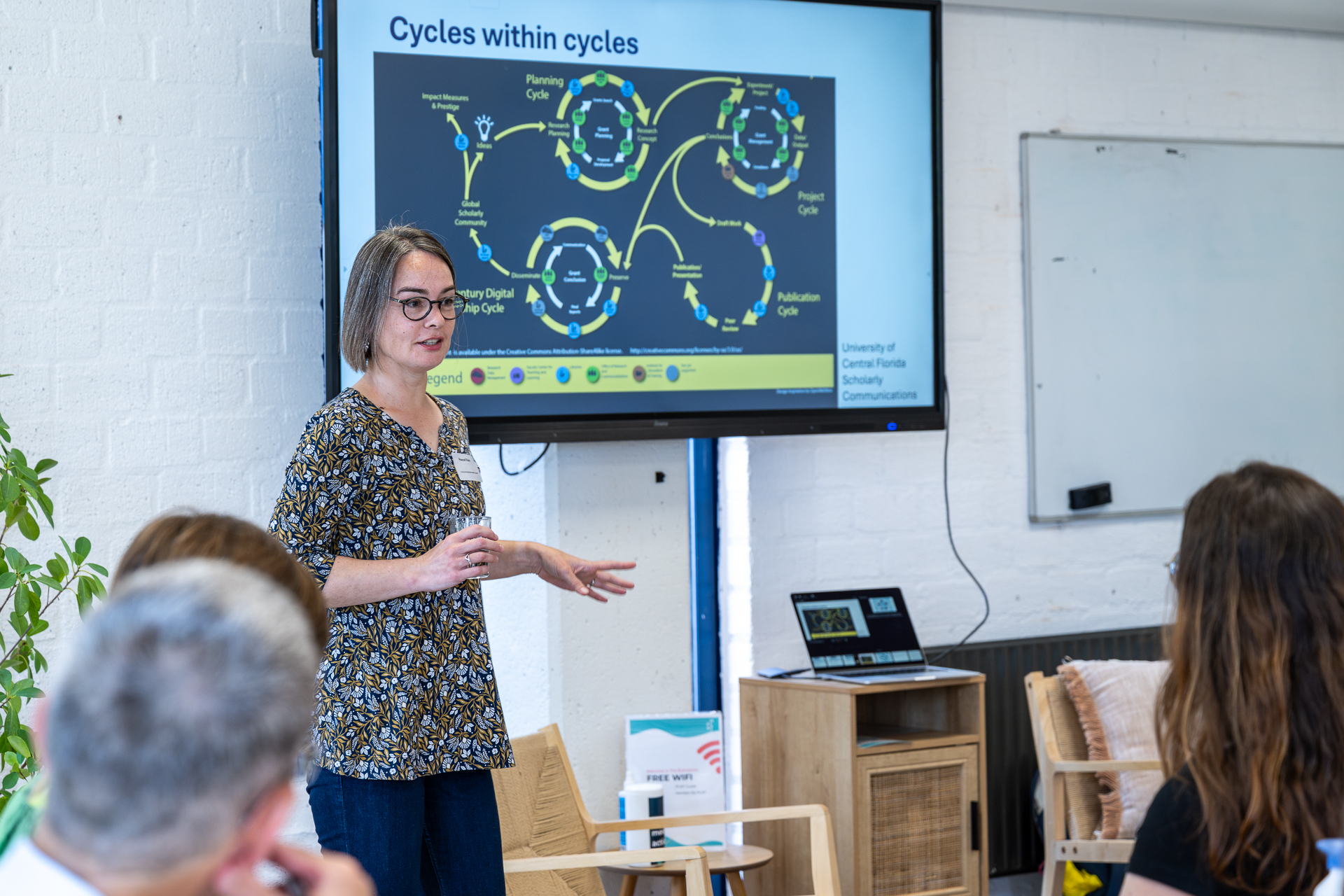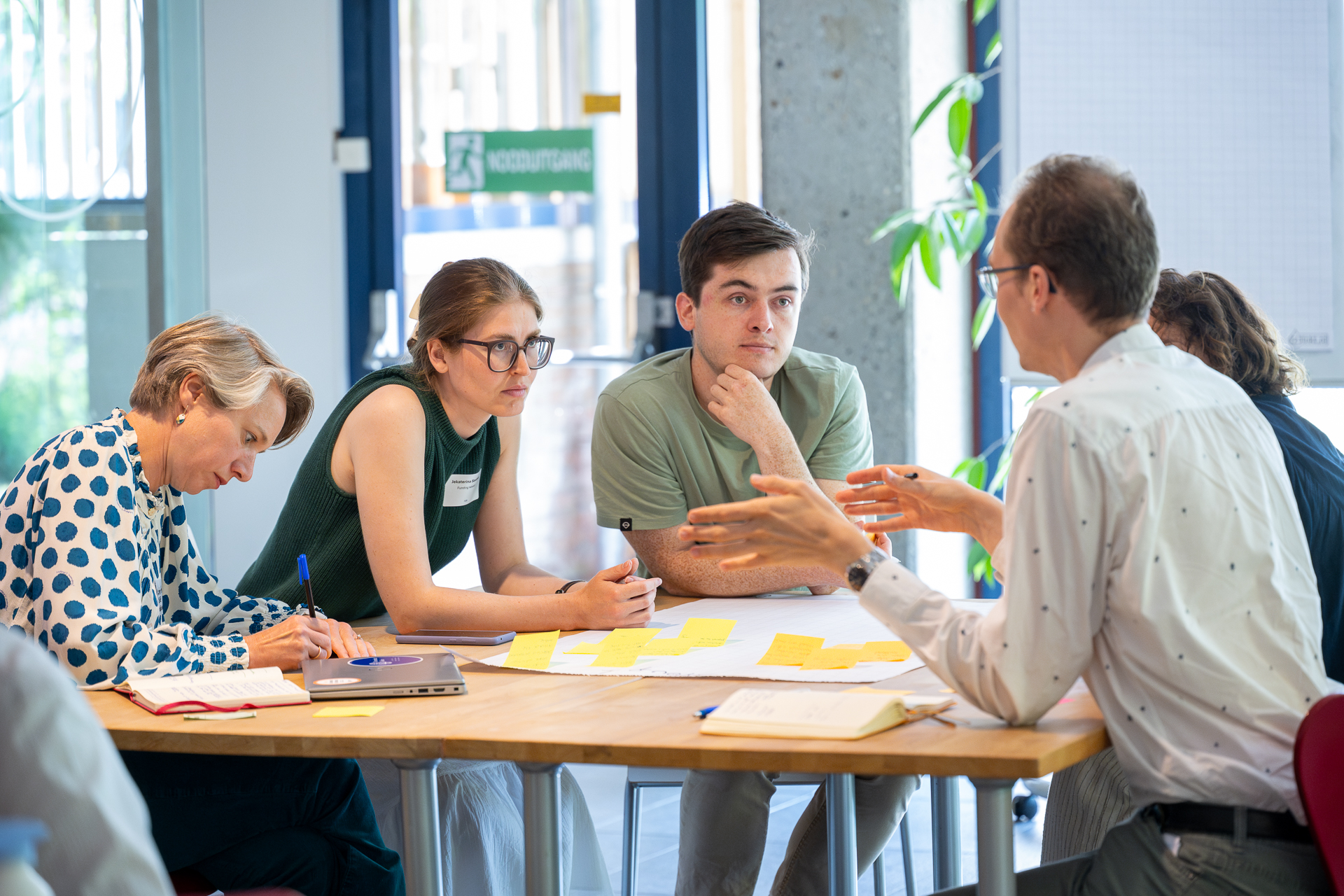
The future of research support: a network of inspiration
The fifth Leiden Research Support Network Conference, on Monday 16 June, was about the future of research support. A great opportunity for the 100 support professionals present to join interactive workshops and to network with colleagues from other faculties and the LUMC.

Keynote on EU perspectives and empowerment
After a warm welcome from Anouschka Versleijen, it was time for Andreja Zulim de Swarte’s (RM ROADMAP Ambassador for the Netherlands) keynote: ‘Unlocking Teams & Talents in the Research Management Profession; Empowering Research Managers as Strategic Enablers in Europe’. In just 45 minutes, she took the audience through the opportunities for research managers, the milestones achieved and the future of research support.
“Behind every successful project stands a team – not just researchers, but professionals who make excellence and impact possible.”
She also looked at the European Commission’s RM Comp (European Competence Framework for Research Managers), which aims to standardise and improve the skills of research support professionals throughout Europe and to offer clear career opportunities. Zulim de Swarte urged the audience to use these professional development tools, build strong networks and support one another in times of budget cuts. She also urged research managers to grow in their roles. ‘Think about who you are, grab opportunities and don’t let your job title define you. Be more visible!’
What did participants take away from the conference?

Annabel Ebbing
PhD, Project Manager (LUMC)
‘Andreja’s keynote really spoke to me because she focuses on empowering research managers and the crucial role we play in the research process. What also stood out was the workshop on increasing the visibility of the supporting roles and jobs in the Research Project Lifecycle. There’s clearly a wide range of jobs, roles and expertise within research management. The mapping task produced a great visual overview of which areas of expertise are involved to a greater or lesser extent in each phase. This gives a better picture of who to approach for what, making it easier to solve problems together and to refer researchers to the help they need. I’m curious about how this overview will be used to develop concrete tips or tools and how it might improve our collaboration.’

Theodore Poumpalov
Grants Adviser (SEA)
‘I thought the conference was really useful for networking and hearing what colleagues from other departments are up to. Although my focus is on teaching rather than research, there’s a lot of overlap with many of the topics discussed. The workshops were particularly interesting because you hear the challenges colleagues face. The session on GenAI tools was very topical. These tools have become such an integral part of daily life that we can hardly imagine life without them – at work or at home. The session also looked at the ethical and responsible use of AI. You have to be really careful. I myself am more hesitant, mainly because I work with sensitive information – when preparing grant applications, for instance. It was interesting to see how you can use these tools for your everyday work, but you always need to consider what exactly you are sharing and how you deal with data.’

Eelco Hoogwout
Lab & Project Manager (Faculty of Science)
‘The conference gives you fresh new ideas and insights because you step away from the everyday. The session on striking a balance between open science, knowledge security and academic freedom also got me thinking. The case about an archaeological project in Saudi Arabia, for example, where conditions were set on what could be published. That raises questions such as where the boundary lies between open science and knowledge security. As colleagues, we generally have the same ideas about such dilemmas, but if you view it from a different angle, you also see other interests and risks. I also see that in my work. Our projects are funded in part by industry, so as a team, you have to consider potential interests. These kinds of issues will become more common in the future, especially now that funding often comes from different sources, such as industry or government. I expect this topic to receive more attention going forward.’
About the Leiden Research Support Network
The Leiden Research Support Network is the essential network for research support professionals within Leiden University. This network allows research support professionals from different domains to enhance their synergy in communities: exchanging expertise and experiences, and working as a team to answer researchers’ sometimes complex questions. The network’s strength lies in teamwork that transcends the boundaries of faculties and institutes.
About the Research Support Portal
Explore the Research Support Portal to find resources and contact points that will help you at every stage of a research project. It contains valuable information like tips on how to find funding, informationation on ethical considerations in research, data management and intellectual property.
Photos: Monique Shaw






